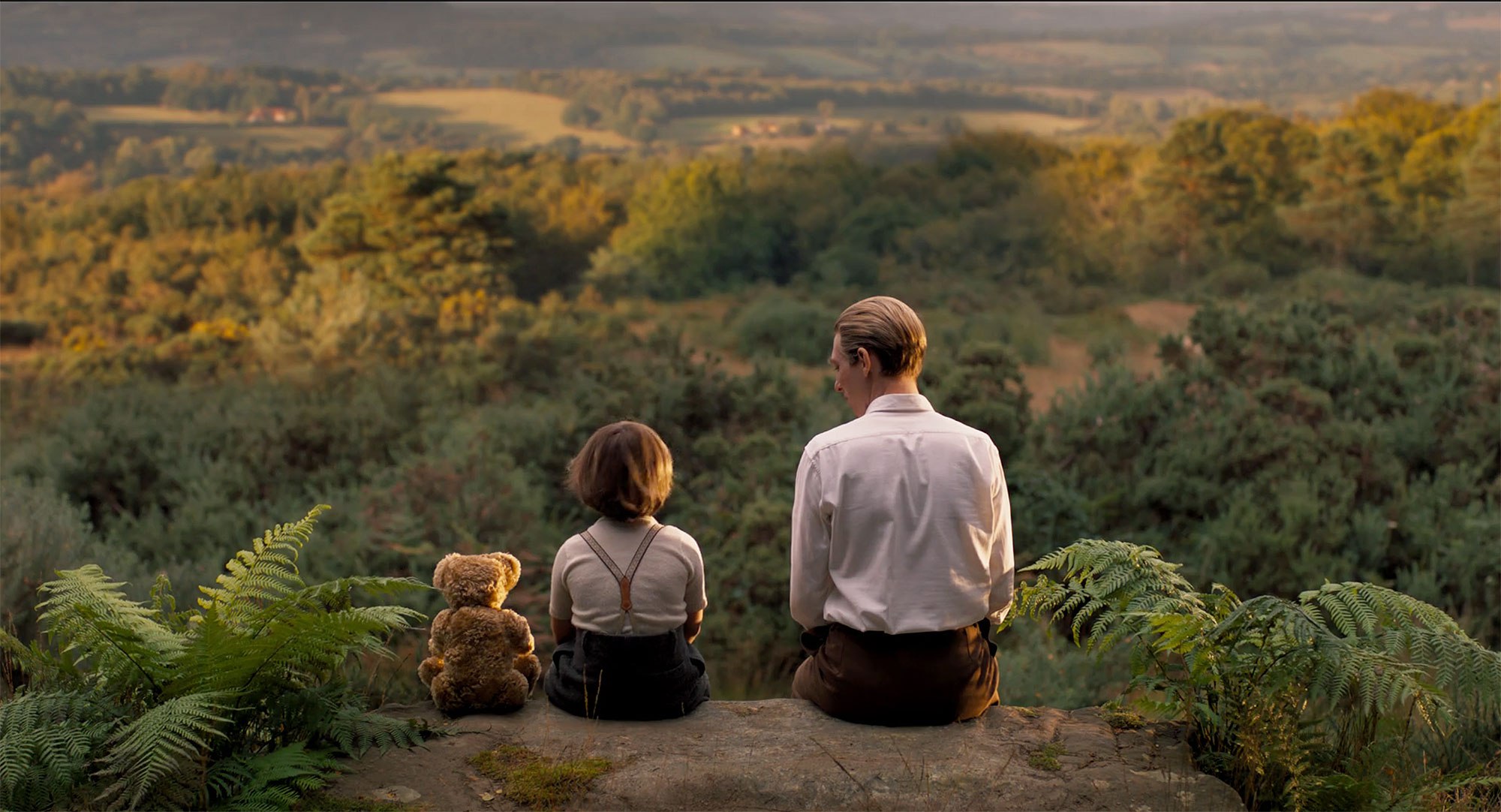 Today at the cinema we saw the film, "Goodbye, Christopher Robin."
Today at the cinema we saw the film, "Goodbye, Christopher Robin."The film was rather scarier and edgier than the film about Winnie the Pooh we had expected. I had always known that Winnie the Pooh and the publicity surrounding it had been at odds with reality in the Milne family. However, the film, rather topically for our time, also brought out the timing of the book - between the two world wars of the 20th century. In the film AA Milne is haunted by his experience of the First World War, in which he fought at the Somme. In the film and in real life, AA Milne was a keen pacifist and wrote a book, Peace with Honour, to such effect. Without giving away the plot, the impending, Second World War also looms large over the characters' lives.
The film does effectively portray how the children's story was birthed in the experience of rather weary and depressed AA Milne, his wife, Daphne and their only child, Christopher Robin (known as 'Billy Moon'). Having already enjoyed success as a writer and playright, AA Milne is in something of a dip in creativity when a forced period one-to-one with his son in their country home, inspires the character and books which became so famous. Winnie the Pooh, based on a childhood teddy bear and a chain of random connections and circumstances became something universal - far outgrowing its existence in the experience of Milne's son's imagination. Even when the author, for the sake of his son, decided to stop writing, he had already let the Bear out of the bag, as it were. The damage is done and his son, Christopher, suffered from unwanted celebrity, not least at school and among peers.
The strongest threads of the film for me are the historical setting in 20s and 30s Britain and America and the dysfunctional personalities and relationships within the Milne family. If anything, Daphne is given quite favourable treatment in the film, although on the other hand it would seem that much of the inspiration for the animal characters was as much her creativity as that of her husband, the author. The most positive character in the film is, for me, the Scottish nanny, Olivia, known to Billy as 'Nu.' It would seem that she and Christopher did indeed remain close in real life.
The film finishes on a note of hope, with resolution on various fronts, and the end-titles refer both to the enduring success of Winnie the Pooh and to the subsequent life of its child hero.
Комментариев нет:
Отправить комментарий